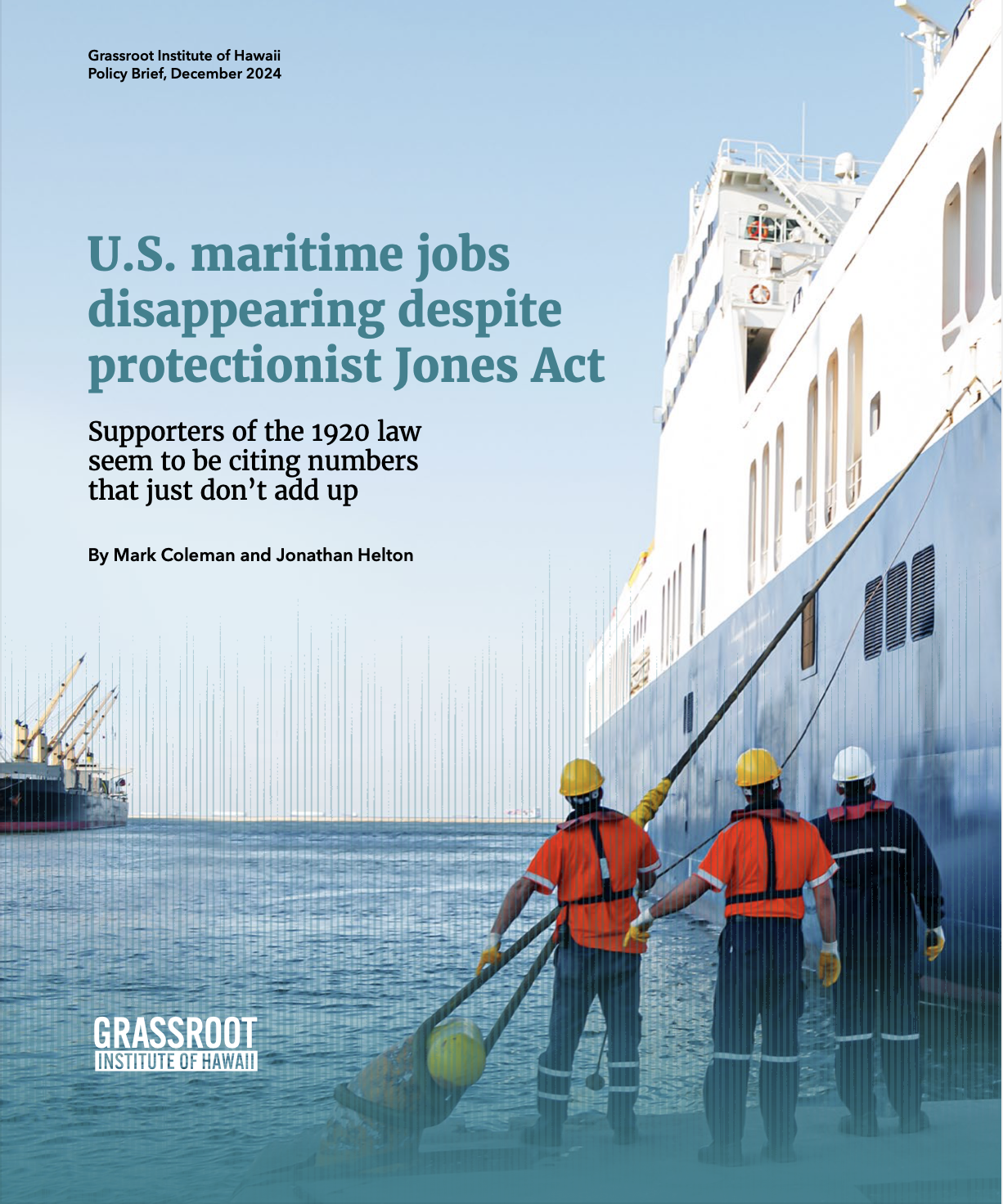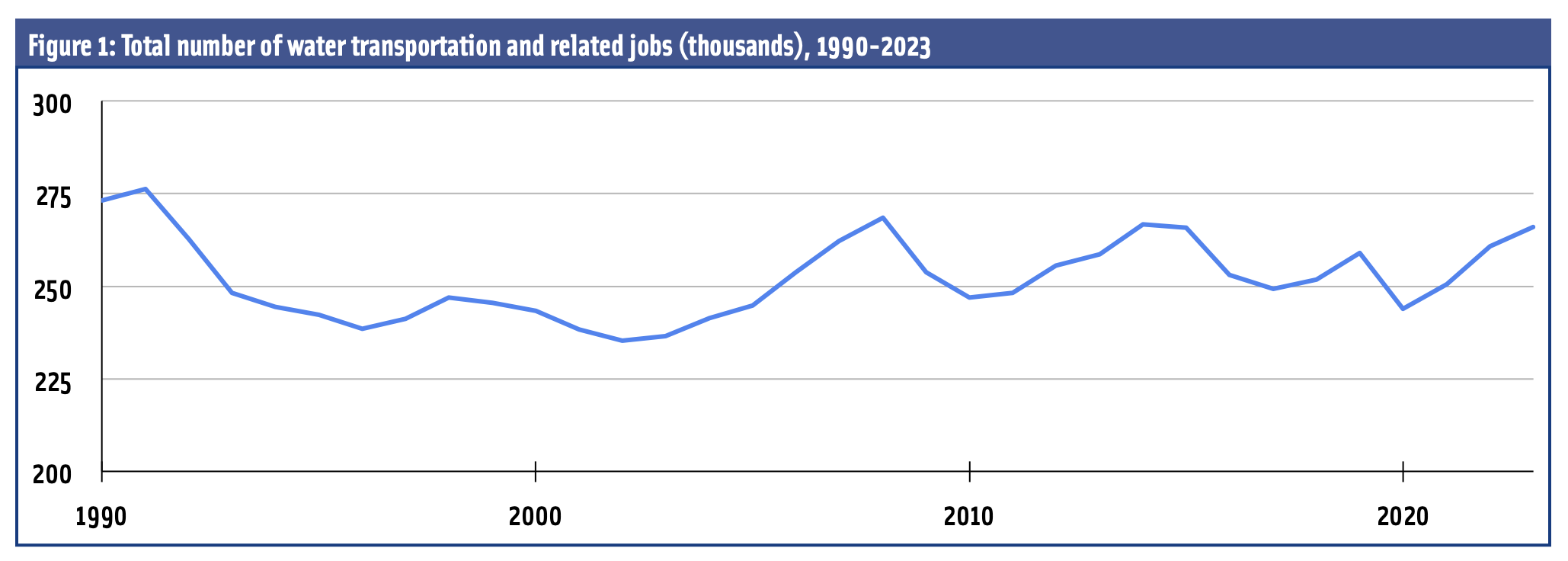New report challenges common claim that 'Jones Act jobs' have been increasing
Jobs in America’s waterborne transportation and related sectors have actually declined in recent decades, federal statistics show
News Release from Grassroot Institute
HONOLULU, Dec. 5, 2024 — New research released today by the nonpartisan Grassroot Institute of Hawaii features an examination of federal statistics that calls into question the assertion that as many as 650,000 U.S. jobs owe their existence to the federal law commonly known as the Jones Act.
As presented in its report “U.S. maritime jobs disappearing despite protectionist Jones Act,” the Honolulu-based policy research organization found that not only are job numbers cited by Jones Act supporters likely overstated, but the number of jobs in U.S. water transportation and related sectors has actually shrunk over the past three decades, despite claims that the Jones Act and similar U.S. maritime laws have been protecting the industry.
Co-authored by Grassroot staffers Mark Coleman and Jonathan Helton, the report concludes that the Jones Act’s “overall economic harm and ineffectiveness at protecting water transportation jobs suggests Congress should think seriously about updating the law for the 21st century.”
In general, America’s maritime laws require that all vessels engaged in domestic coastwise commerce be U.S. flagged and built, and mostly owned and crewed by Americans — whether transporting goods or passengers between U.S. ports, dredging harbors or providing tugboat services.

Defenders of the 1920 Jones Act in particular — which pertains to the waterborne transport of goods between U.S. ports — claim that America’s protectionist laws have been significantly boosting what they call “Jones Act jobs” through the years, from 124,000 jobs in 1997 to 500,000 in 2017 and 650,000 in 2023.
But according to the Grassroot policy brief, overall employment in water transportation and related sectors has decreased by 2.62% since 1990 — from 273,100 to 265,900 in 2023, the latest calendar year for which such employment figures are available.

Source: “North American Industry Classification System,” U.S. Census Bureau.
Thus, the report concludes, “Claims that the number of jobs supported by the Jones Act have increased fivefold since 1997 … are suspect and ignore the overall downward trend in water transportation and related jobs.”
Further, the Grassroot report notes that job figures cited by Jones Act supporters are based on a study that has never been made public, and calls on the pro-Jones Act Transportation Institute, which commissioned the study, to release its findings and methodology “to foster an honest debate about how many waterborne transportation and related jobs there really are.”
The brief also notes that “employment in U.S. water transportation and related industries would continue to exist” in the absence of the Jones Act, and, more important, that reform or repeal of the Jones Act would likely result in “more maritime industry employment in the U.S. [by] spurring a boom in traffic between U.S. ports.”
As Grassroot President and CEO Keli‘i Akina writes in the report’s preface, the claim that the Jones Act is responsible for 650,000 jobs is an “emotion-laden allegation [that] engenders sympathy for the law.”
However, he continues, “updating the Jones Act for this century could … lead to energetic maritime job growth and lower prices for U.S. consumers,” and “Congress should take a fresh look at the Jones Act without grave concern for whether repeal or reform would result in economic calamity through massive job loss.”
To read or download a copy of the Grassroot Institute of Hawaii’s new policy brief, go here or click on the button below.
For more information about the Grassroot Institute of Hawaii, go here.
>>> DOWNLOAD THE REPORT <<<